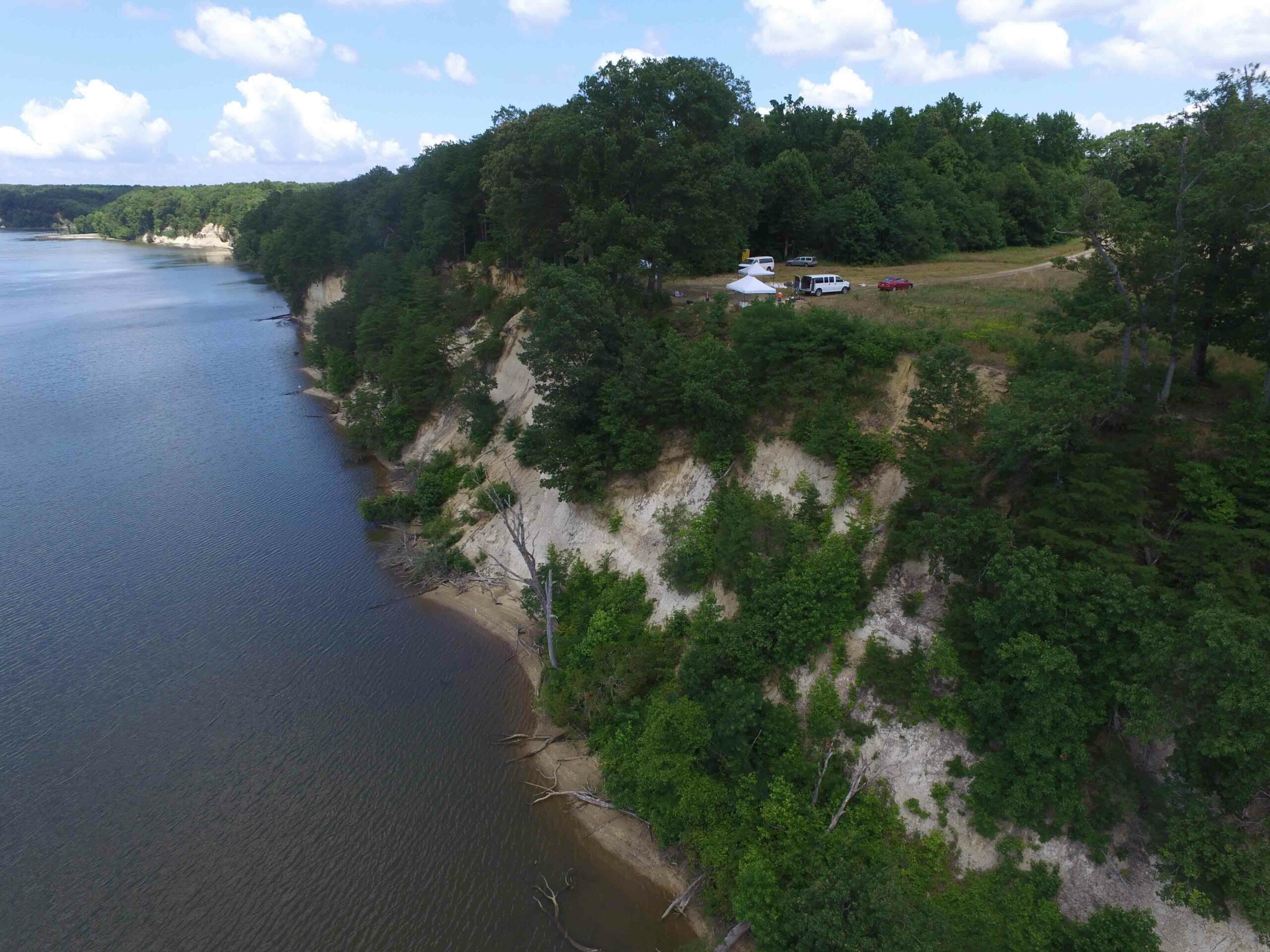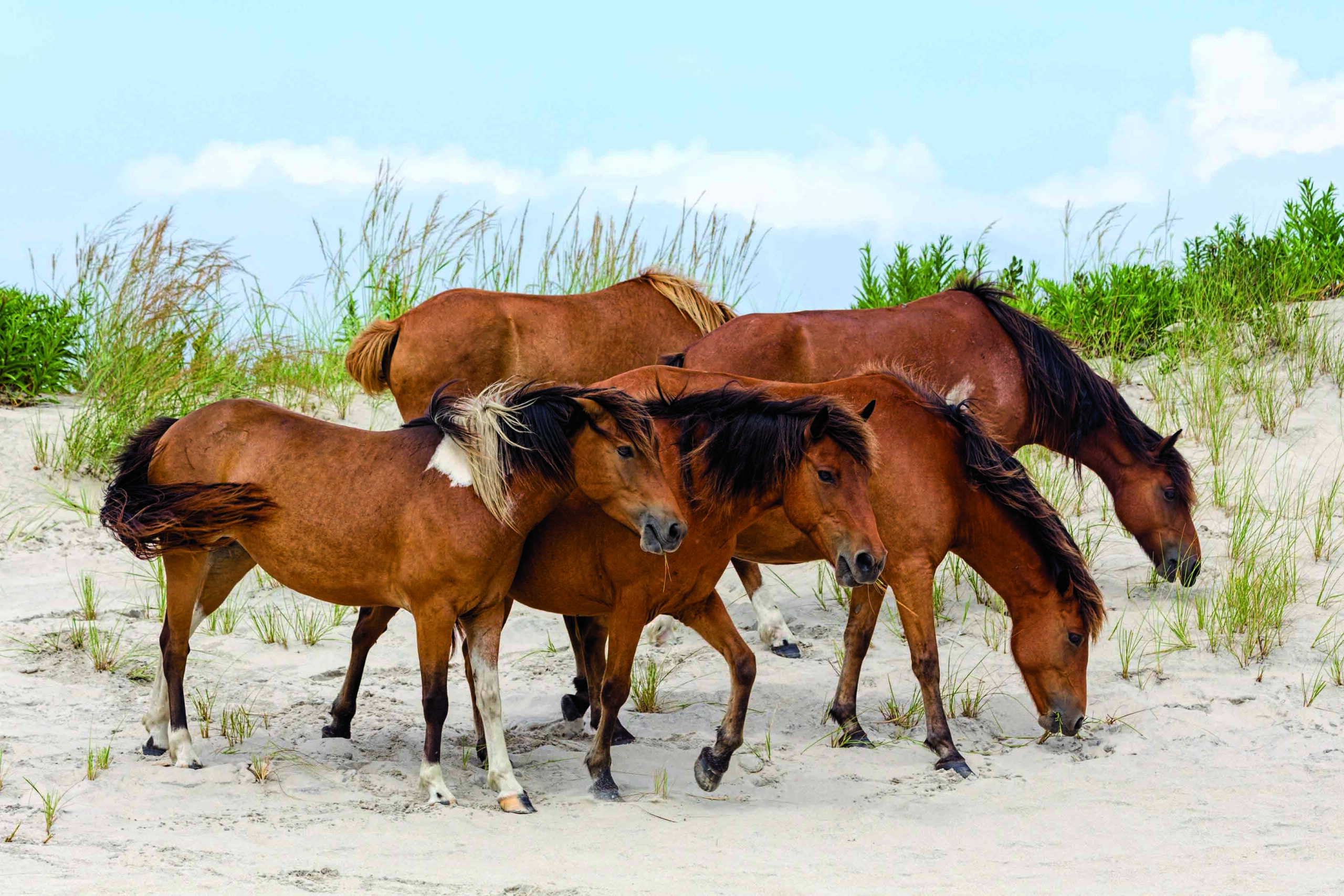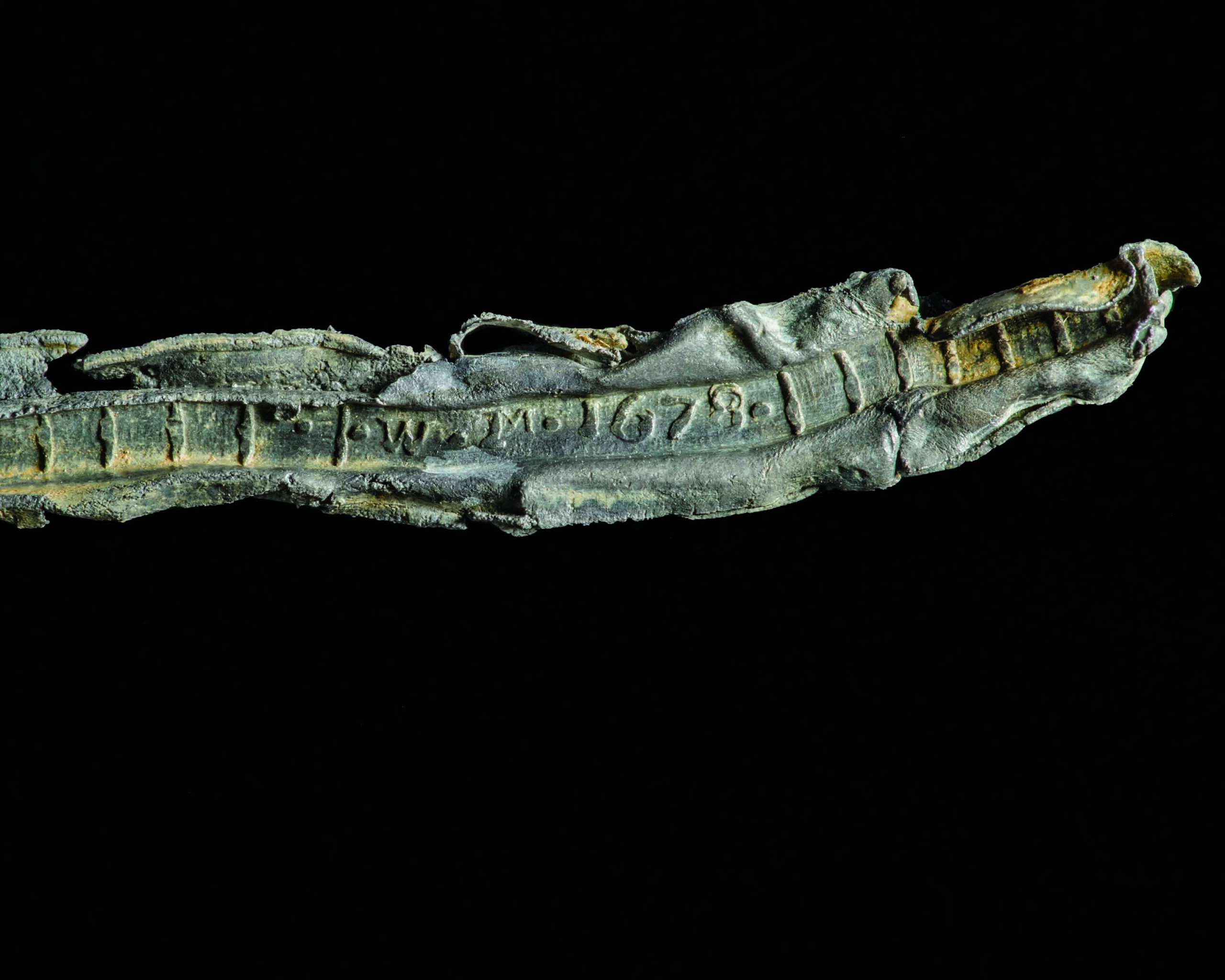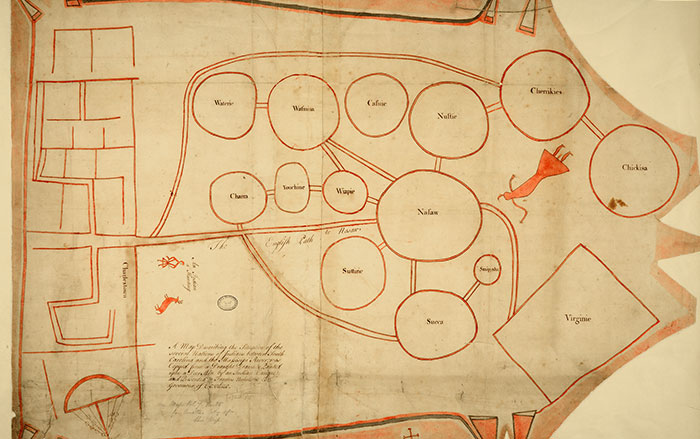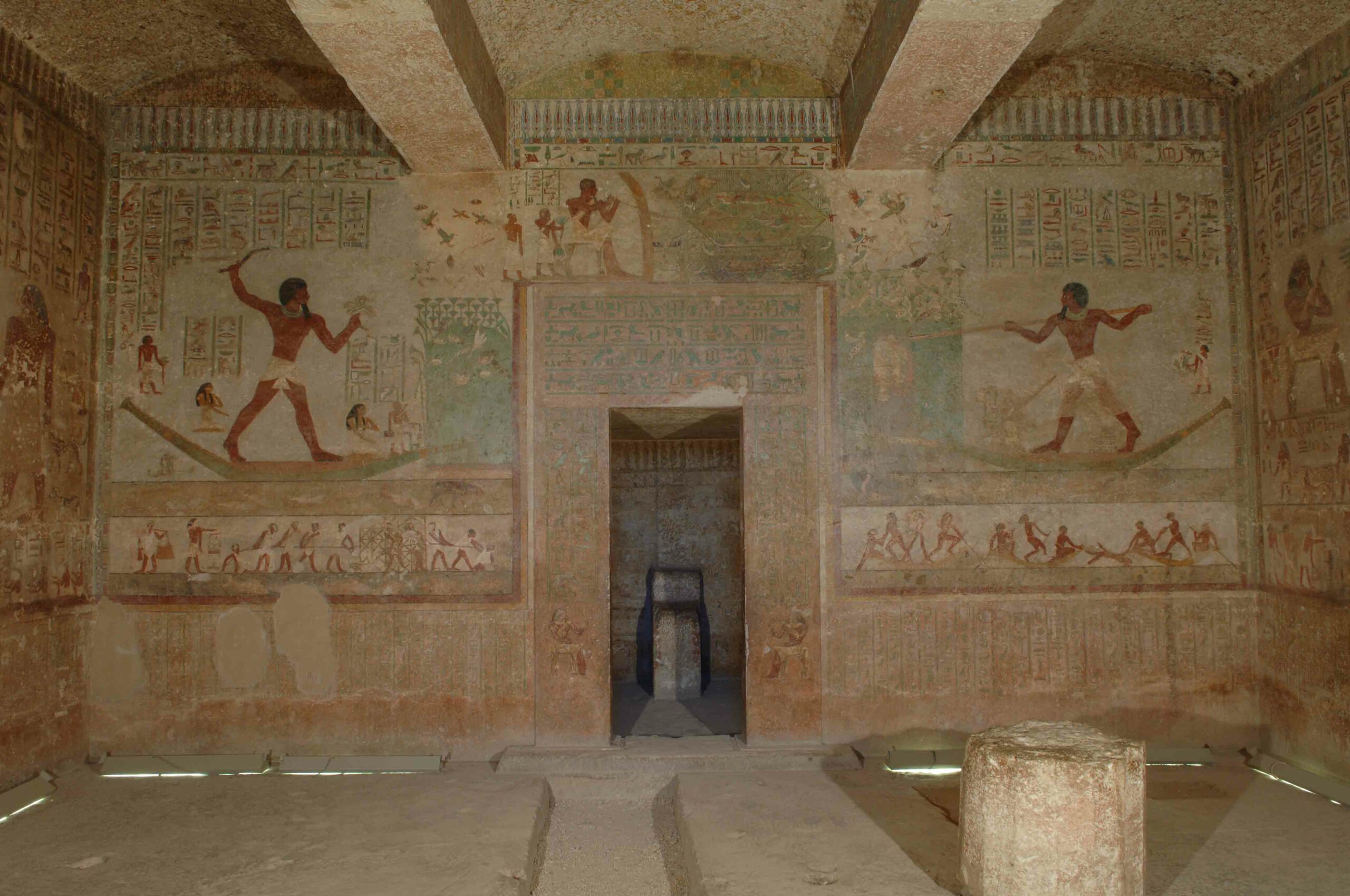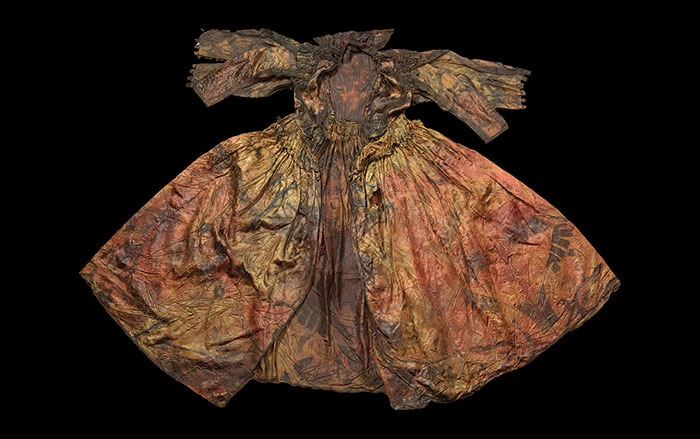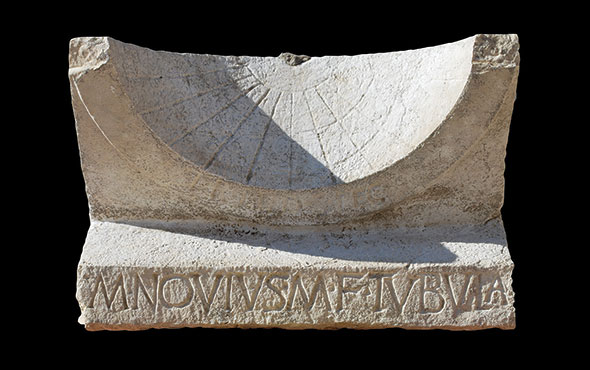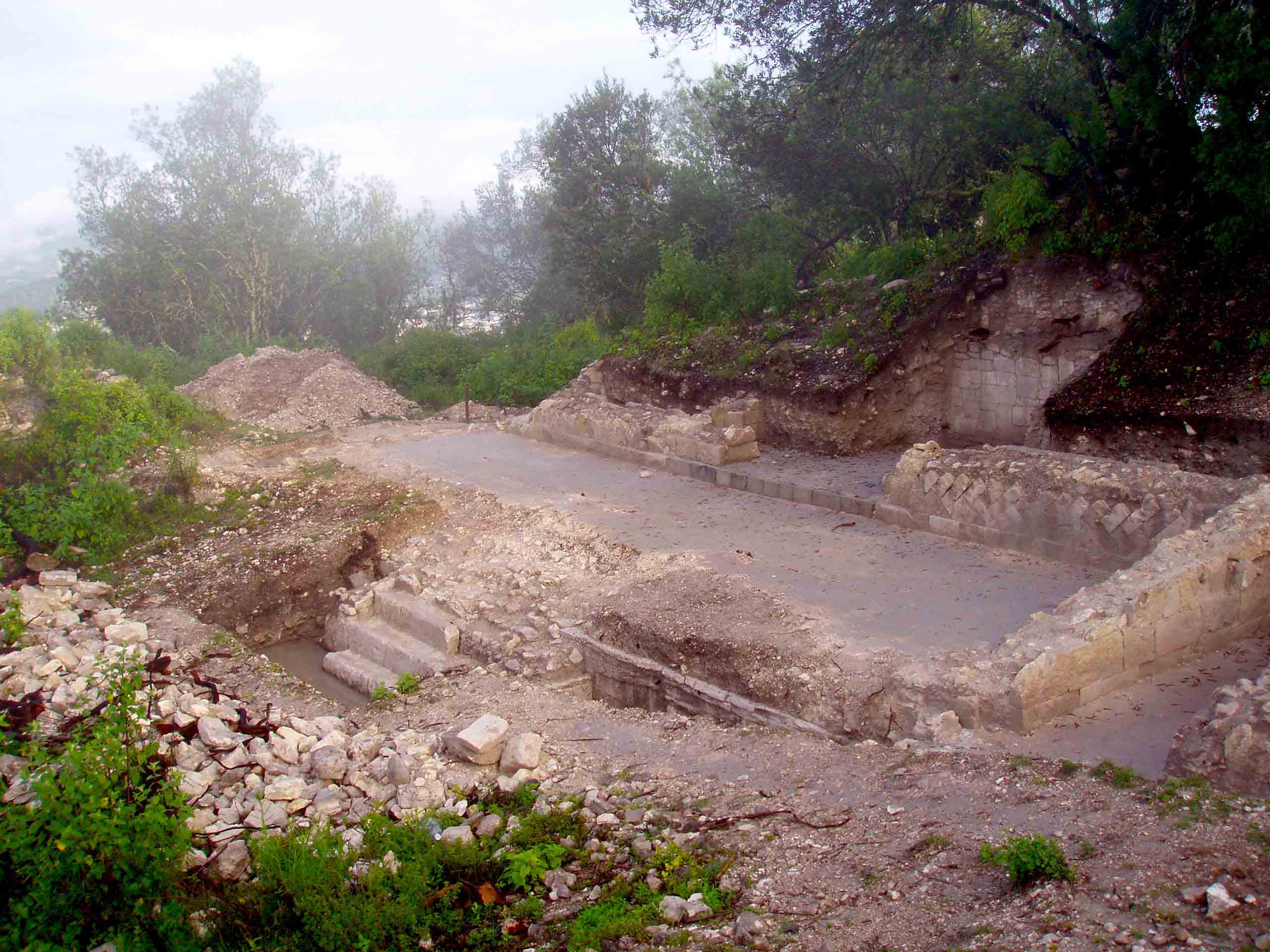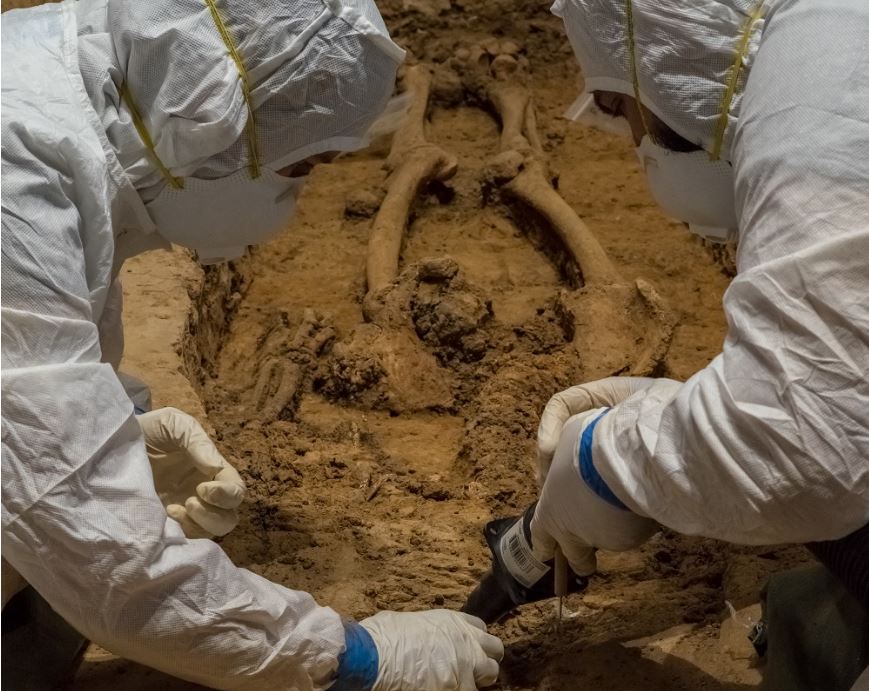
JAMESTOWN, VIRGINIA—The Williamsburg-Yorktown Daily reports that an unusually wide seventeenth-century grave near the chancel of the 1617 church at James Fort may contain the remains of Sir George Yeardley, one of the first governors of Virginia, who served in that capacity three different times, including overseeing the first English legislative assembly in the New World in 1619. “You have to really be a prominent member of the society or in the clergy to be buried in the chancel of the church,” explained Jamestown Rediscovery archaeologist Kaitlyn Fitzgerald. The skeletal remains in the grave are of a man in his 40s, which is consistent with Yeardley, who was born in 1587 and died in 1627. The excavation is being conducted under a tent, and excavators are wearing protective gear, to try to prevent any contamination of the skeletal remains, which could interfere with future DNA analysis. To read about the discovery of a tombstone that may have marked Yeardley's grave, go to “Knight Watch.”


